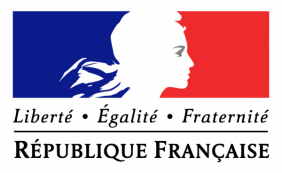

DISIC encourages contributions to open source software, proprietary vendors are up in arms
01/06/2015
DISIC, the French State’s Interministerial Directorate for Information and Communications Systems, has been bravely supporting the transition to open source over the past two years and now plans to allow its civil servants to contribute to open source solutions during their work hours. The reaction of proprietary software vendors was prompt.
The path chosen by DISIC will be a long and arduous one. Since the publication of the “Ayrault Circular Letter” more than two years ago, the Administration has been encouraging the use of open source software.
Round 1: CIO-Online
On 19 May last, DISIC issued a communication expressing its intention of going even further, in an editorial penned by its Director Jacques Marzin and published in CIO-Online.
In that statement, Jacques Marzin reiterated the importance of publication of the SILL (Interministerial Open Source Software Base), the second version of which was published this past February. The SILL “simplifies the work of IT departments and helps to better streamline the State’s IS”: for each functionality, an open source solution is presented. This base is the fruit of work by an interministerial team and aims to ensure that the Administration takes ownership of the solutions, sharing technological monitoring work and simplifying complex OSS choices.
In that same article, Jacques Marzin indicated that the adoption of this base will only be effective if accompanied by real support for its rollout. As a result, guides are now being attached to it, based on previous feedback. The first of these is devoted to migrations to PostgreSQL databases. The next guides will cover Samba file servers and configuration and virtualization tools.
DISIC’s Director explains that this strategy is “far from an ideological, partisan position, as the choice of whether or not to use an open source solution should meet a series of objective criteria. Criteria that can be economic, technical or temporal, or that may relate to operability, skills proficiency, expertise or to matters of national sovereignty” are in play here.
“The State’s open source software strategy can no longer be dependent on volunteerism, altruism or the skill sets of a small circle of enthusiasts.”
Jacques Marzin champions the possibility for members of the different ministries to devote “a significant proportion of their working time, over a given period, to work on open source software”.
Round 2: Next INpact
In a second interview given to Next INpact, Jacques Marzin drives the point home, expressing a hope that “DISIC will be more instructive and more directive in terms of its editorial line than it has been so far”, adding that he wants to “increase the accessibility of OpenOffice”. Despite all this, DISIC does not appear to be favourable to a compulsory policy in the field of open source, although Parliament prioritized open source software in the 2013 Teaching Act.
Round 3: Vendor reactions
In this context, vendors are clearly feeling threatened. An article published in Les Échos this past 29 May is a sort of settling of accounts. Its terms are none to kind: Loïc Rivière, Vice-president of AFDEL, the French Association of Software Publishers and Internet Solutions, is “on the warpath”, asserting that “the Administration is reinstituting the wars of religion, despite the fact that the coexistence of formats has become a reality today which everyone accepts”.
The apple of discord lies in the creation of a State messaging system for a million civil servants, plus a public cloud. Clauses stipulating that their servers must be located in France represent a de facto exclusion of major proprietary actors like Microsoft, Google and Amazon. In addition to those two projects, DISIC’s proactive dynamics have been condemned, and it is easy to imagine that lobbying firms must already have their marching orders at this point.
And yet, the fact remains that open source solutions are vehicles for substantial savings for the French government: in 2013, the Ministry of the Interior indicated that replacing Outlook with Thunderbird cut the invoice for State services by 80%.
Latest news
- 13/02/2017 // CERN expands its cloud with OpenStack
- 05/01/2017 // OroCRM and OroPlatform 2.0
- 27/10/2016 // Very blurry role for open source software in the Administration
- 10/10/2016 // Open source: Report on employment in Europe
- 26/09/2016 // WordPress still the top target of cyberattacks
- 08/09/2016 // Feedback on DevOps
- 26/06/2016 // According to one commissioner of the CNIL (National Computing and Freedom Commission): free software is the "only viable alternative"
- 16/06/2016 // The INSEE and the DREES share the code for the Ines model
- 24/05/2016 // Recruiters looking for open source skill sets
- 19/05/2016 // Linux scheduler found inadequate !


